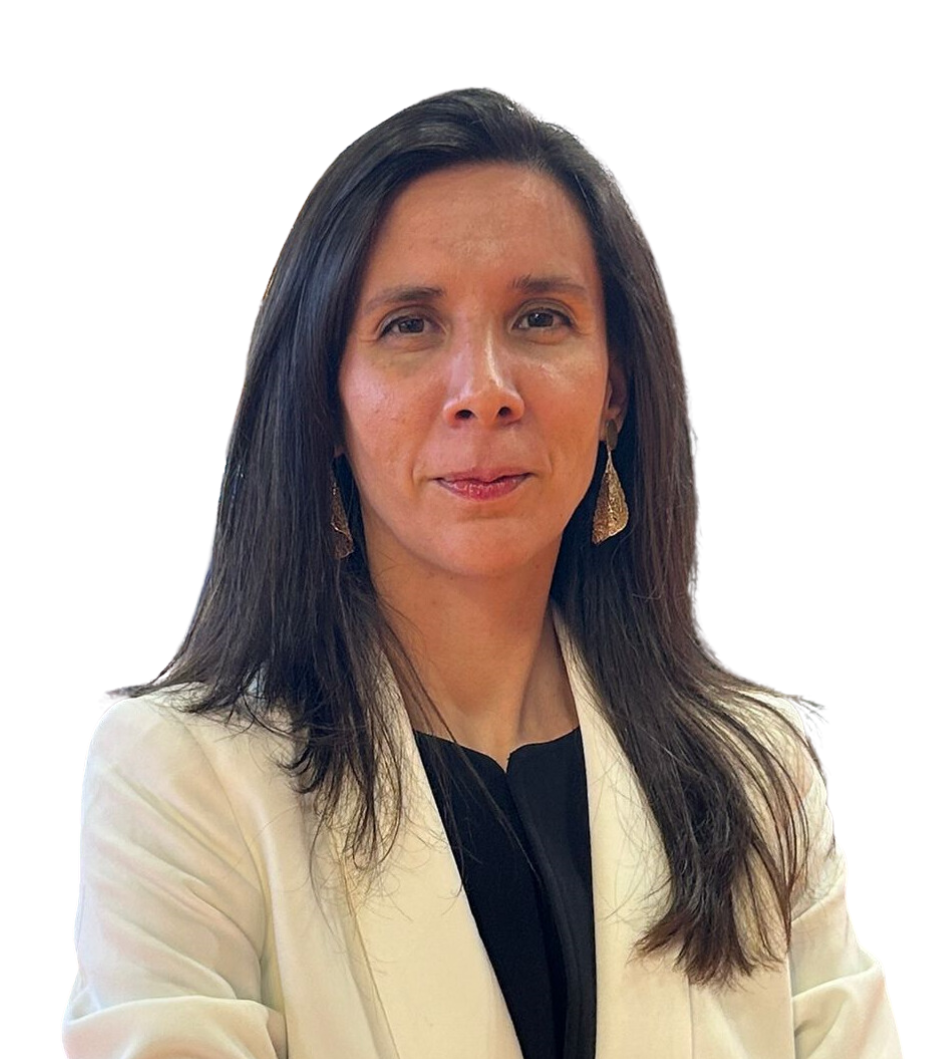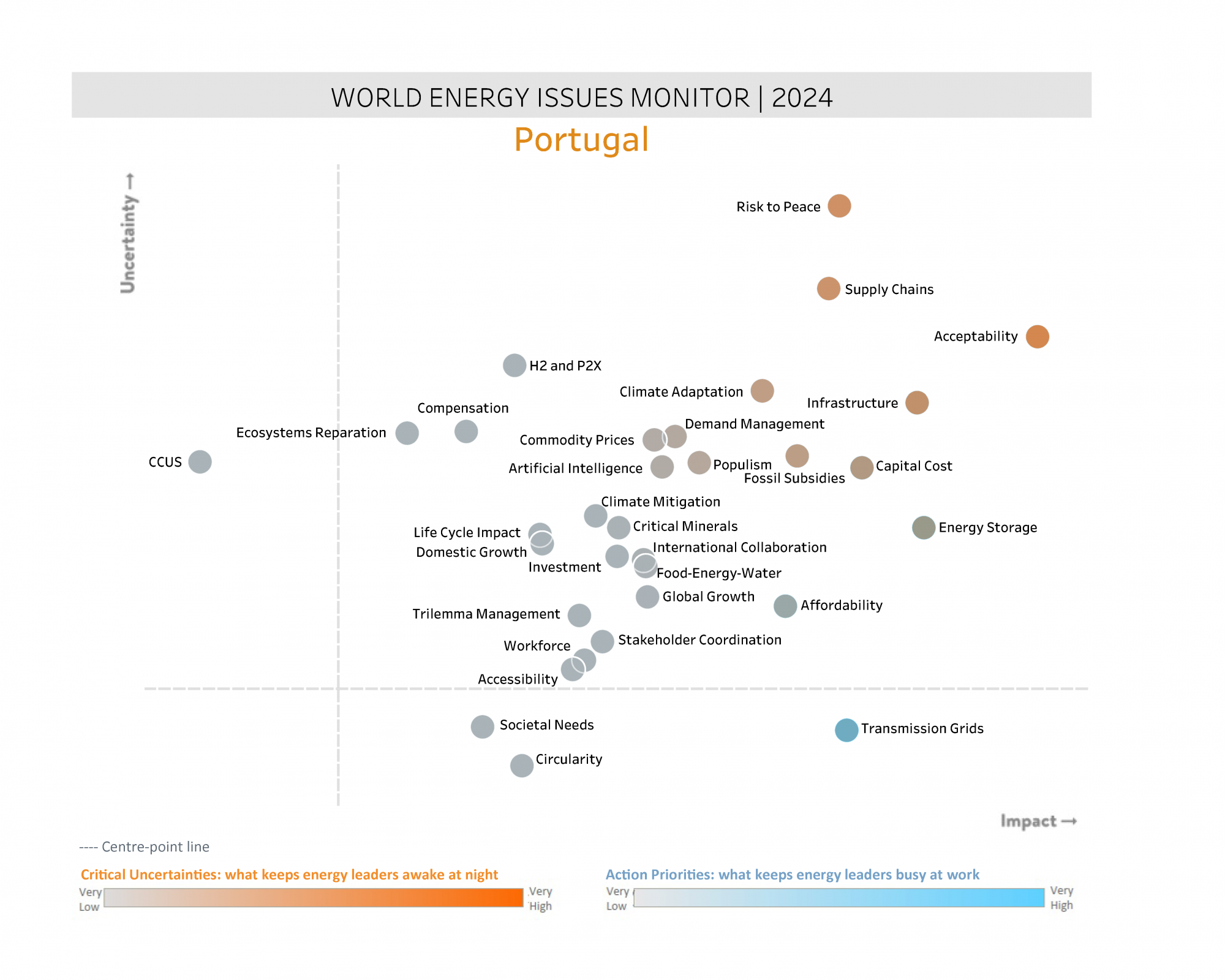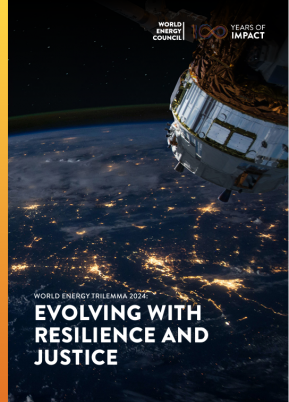Associação Portuguesa de Energia is a non-governmental, non-profit charity, aiming to promote sustainable energy, through reflection, debate and targeted initiatives, which will improve the energy sector’s contribution to the Portuguese economy and quality of life. The Association is the national member committee of the World Energy Council, and has among its constituent members the main energy operators, industries and services companies.
João Torres holds strategic advisory functions regarding the implementation of a Global Platform for Distribution and Transmission Networks at EDP, is a Non-Executive Board Member of EDP São Paulo and EDP Espírito Santo, the distribution companies owned by EDP in Brazil. Since 2008, he holds the position of Director at ELECPOR, the Portuguese Association for the Electricity Sector. In 2022 he is elected as Chair of Associação Portuguesa da Energia, the Portuguese Member Committee of the World Energy Council.
He is the former CEO of E-REDES, the Portuguese Distribution System Operator, over fifteen years. After serving two consecutive terms as Chairman of E.DSO for Smart Grids, he remains dedicated to the common interests of the sector at European level, acting as VicePresident until 2020. He is now Chairman of E.DSO Stakeholders & Innovation Committee. João Torres joined EDP in 1982. He held management and executive positions in energy generation and distribution, human resources, healthcare services and training, including the creation of the EDP’s shared services company. He was also a Board Member of EDP International from 2012 until 2021. João Torres is a regular speaker on national and international events about Energy. Graduated in Electrical Engineering from the Instituto Superior Técnico and holds an MBA in Industrial Management.

Ana Luís de Sousa is an individual member and actively collaborates with the Member Committee, particularly since 2020, when she was one of the founders of the Future Energy Leaders Portugal program, of which she was Secretary-General, and is also a founder of the Mulheres na Energia program.
Ana Luís de Sousa has a PhD from the University of Lisbon, where she holds a teaching position as an Invited Assistant Professor. She is a graduate with a master’s degree in civil engineering and has two other MSc in Petroleum engineering and Mechanical engineering. She is a senior member of the Ordem dos Engenheiros, with recognition as a specialist in hydraulics and water resources and energy. She has business and academic research experience and was also an advisor to the Secretary of State for Energy and Climate.
Energy in Portugal

Changes Since the Last Iteration
When comparing the top five uncertainties of the 2022 and 2024 Portugal Issues Survey results, there are no common issues. This remarkable difference may signal a considerable change in the business environment, and reflect adjustments to higher costs resulting from the supply crisis, inflation, and the pandemic, as well as the effects of recent wars. Additionally striking is the fact that all the top five priorities in 2024 are new issues, not present (at least as such) in the 2022 survey. One of these, ‘Acceptability,’ relates to the 'social license' to operate, now becoming prominent.
It is also surprising to notice the downgrading in 2024 of the economic issues present in the top five in 2022 (Commodity Prices, Affordability, Economic Growth, and Investor Environment). Despite the persistence of these challenges, it can be concluded that the energy sector has adapted to these new circumstances. Specifically, affordability moved from the 'Priorities' corner in 2022 to the 'Need for Action' corner in the 2024 edition, indicating that this social concern has become a focus of current policies.
Five-Year Country Trends
Portugal, aiming to be carbon neutral by 2045 (Climate Law), has increasingly invested in renewable energy sources, initially focusing on wind energy and now primarily on solar power. Over the past five years, there has been significant growth in renewable electricity generation capacity, which is expected to contribute to 80% of electricity generation by 2026. This increasing trend is driven by government policies. According to the Directorate General for Energy and Geology, renewable generation supported 54% of demand in 2019, increasing to 61% in 2023 (REN).
Electric vehicle (EV) demand is increasing, but EVs still represent less than 1% of the national fleet. Government incentives, including support to purchase electric vehicles or scrap old combustion ones, expansion of public and private charging networks, and the creation of a payment platform (Rede Mobi.E), are some actions promoting transport electrification.
Energy efficiency has improved across several sectors, including buildings, industry, and transport. According to a progress report of the Energy Savings Plan, Portugal exceeded the energy efficiency target established for 2023 by 159.6%.
Pumped hydro storage and batteries are being integrated into ongoing hybrid renewable projects, allowing maximization of renewable generation from variable sources (solar and wind). However, a significant increase in storage capacity is still needed.
Leadership in Community Integration
The government plays a central role in ensuring that energy transition policies are inclusive, considering consumers' needs. This can involve subsidized bills, incentives for community-based renewable energy projects, or policies prioritizing energy efficiency.
Suppliers are active in helping consumers join Energy Communities, sometimes financing installations and setting up platforms that aggregate producers and nearby consumers, who will benefit from lower energy costs. Non-governmental organizations also play a significant role by promoting debate, awareness, and energy literacy.
Within communities, local leaders and activists are championing the transition to clean energy by promoting the creation and involvement in Renewable Energy Communities.
Progressing Faster, Fairer, and More Far-reaching Energy Transitions
Faster Progress: Scaling up new energy technologies, storage, and infrastructure is needed to accelerate the transition to a cleaner energy system. Energy storage enables the efficient integration of variable renewable energy sources, reducing reliance on grid stability provided by fossil fuels. Additionally, the expansion of renewable energy generation, transmission grids, and electric vehicle charging networks will allow the widespread adoption of clean energy resources abundant in the Iberian Peninsula. Electricity grid interconnections between Portugal and Spain and Iberia and the rest of Europe also leverage these resources, allowing new and more electro-intensive industries to settle in Iberia, creating more skilled jobs and accelerating the region's economic development.
Fairer Transition: Although access to electricity in Portugal reaches 100% of households, ensuring that the energy transition is fair and inclusive involves addressing social (mainly economic) equity concerns. The energy transition can contribute to more equitable social cohesion through the creation of job opportunities and reduction of energy costs over time. Meanwhile, subsidies are still required to support low-income consumers, ensuring that no segments of society are left behind during the transition.
More Far-reaching Impact: The energy transition has effects beyond the energy sector, such as new industries, technological development, new employment opportunities, emissions reduction, and new clean fuels. These are positive effects, but the transition also raises economic concerns and social stress, such as unemployment from fossil facility shutdowns and sunk costs.
Policy and Ecosystems to Enable Transparent, Transformational, Trustworthy Transitions
Portugal has robust policy frameworks that set clear targets and provide a roadmap for the energy transition. The Energy and Climate National Plan (PNEC 2030) and Carbon Neutrality Roadmap are the two main strategic documents setting targets for 2030 and 2050. These plans include measures that promote renewable energy, energy efficiency, and emissions reduction, with clearly defined objectives and mechanisms for monitoring progress.
The National Investment Program 2030 (PNI 2030), the planning framework for the next cycle of strategic and structuring investments at a national level, was approved in 2023, listing private and public projects, including energy-specific actions to enable this transformational transition. The PNI includes the Development and Investment Plans for electricity and gas grids (PDIRT and PDIRD).
Transparent and regular reporting mechanisms are also foreseen.
Climate Risk and Resilience
Portugal faces climate risks, including extreme weather events, sea-level rise, and changes in precipitation patterns. The Climate Law, published in 2021, established a set of obligations related to policy instrument development, including the Regional Climate Action Plans and Municipal Climate Action Plans.
Resource Allocation, Active Management, and Funding Flows
Through a combination of strategic resource allocation, active management, diverse funding streams, and private investment, promoters are developing their green projects. The primary finance resource stems from private investment, but state aid plays an important role. The Resilience and Recovery Plan and REPowerEU are also pivotal. These support mechanisms are monitored within set timeframes and intermediate targets, ensuring efficient resource allocation. Other state aids are being operationalized to further reinforce the energy landscape through the Portuguese Environmental Fund. Furthermore, companies can tap into various European funds, augmenting the financial support available for innovative energy ventures.
Acknowledgements
Portugal Member Committee
Downloads

Portugal World Energy Trilemma Country Profile 2024
Download PDF
Portugal Energy Issues Monitor 2024
Download PDF
World Energy Issues Monitor 2024
Download PDF










